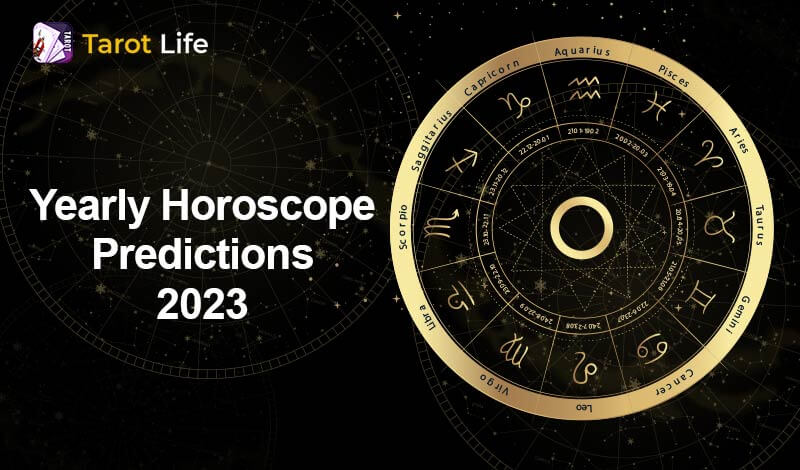What Is Vedic Astrology
As mentioned earlier, Vedic Astrology is the most ancient form of astrology which has its origin rooted in the ancient Indian scriptures called the ‘Vedas,’ hence the name ‘Vedic Astrology.’ It used proper study and analysis of Houses in Astrology and Vedic Astrology signs to interpret the future. In modern Vedic Astrology, the planetary positions are identified to see their effects on one’s life. It is also called Jyotish Vidya. But it is not just the planets and their positions that are considered here. There are other elements as well that bring variations in the readings and Vedic Astrology chart interpretation. Together they create a well-structured answer for your question ‘What is astrology?’ So now let’s see what these elements are to gain a better understanding.Elements Of Vedic Astrology
Nine major aspects are considered while making predictions based on Vedic astrological signs. Let’s see what they are.1. The Transits (Gocharas)
It is the study of planetary movement concerning the moon’s position in one’s horoscope.2. The Zodiac Signs (Raashi)
It refers to one of the twelve constellations in which the Sun is located at the time of birth. It is famously known as Sun Signs.3. The Vedic Astrology Chart (Kundali)
It is the representation of the sky map, i.e., the planetary positions at the time of one’s birth. Here, place plays an important role. Horoscope India will be different from those of other places.4. The Houses (Bhavas)
It is the twelve sub-divisions of the Vedic natal chart, each of which represents specific areas of one's life. This is more effective when you can identify the Vedic signs.5. The Lunar Mansions (Nakshatras)
It is one sector of space that is divided into twenty-eight equal parts in which your moon resides and moves.6. The planets (Grahas)
These are the nine planets that impact the life state of a person. Although this is not rigid and can vary, it is a prominent element when we define astrology.7. The Planetary Period (Dasha)
It refers to the condition or the period of one’s life based on how their planets are placed. Here, note that if the person is a resident of India then his Indian horoscope will be considered.8. The Aspects (Drishti)
It is the distant impact of one's planetary positions that are used in Vedic Astrology chart interpretation.9. The Planetary Combinations (Yogas)
It determines the impact of planetary relations in your life, used to predict the future. Here, the types of horoscopes impact the result. These are the factors that are considered to determine the Vedic Astrology meaning as and when the need arises. Now you know what is Vedic Astrology and have enough information to get to the next topic which will tell you about the types of Vedic Hindu Astrology or its native sub-divisions. Also, we’ll know how Vedic Astrology predictions can be used to know how your life will be. Let’s see what these are. Before moving forward, I would like to get one thing in your notice. There are many online Vedic Astrology calculators available that can help you in creating your Vedic natal chart. But I personally recommend talking to an expert to get the best solutions.Types Of Vedic Astrology
 Vedic Astrology is a branch of Hindu astrology along with the Chinese, Horary, Electional, and Western astrology which
is further subdivided into three parts. Each part or specific area of modern Vedic Astrology deals with individual
aspects of one’s life.
Here, we’ll see how the Vedic Astrology horoscopes are divided further. Also, we’ll learn about the concept of Vedic
Astrology houses.
Vedic Astrology is a branch of Hindu astrology along with the Chinese, Horary, Electional, and Western astrology which
is further subdivided into three parts. Each part or specific area of modern Vedic Astrology deals with individual
aspects of one’s life.
Here, we’ll see how the Vedic Astrology horoscopes are divided further. Also, we’ll learn about the concept of Vedic
Astrology houses.
1. Parashar
Parashar Vedic Astrology was the oldest of all and this was brought into existence by sage Parashaara, also known as the father of Vedic Astrology. It covered all the aspects of astrology and developed various ways to interpret the life and future of an individual. This can also be used to create and interpret one’s birth chart report. Along with many important and well-researched texts about various topics in the world, the one that relates to the branch of Vedic Astrology is ‘Brihat Parashara Hora Shastra.’2. Jaimini
Jaimini is another form of Vedic Astrology which was developed by the sage Jaimini. He was the sage Ved Vyasa’s protégé. After learning about astrology from his teacher, he developed his own form of astrology that dealt with the Hindu zodiac signs. It was the collection of literary rules or aphorisms which in Sanskrit are called ‘The Sutras’ or ‘The Jaimini Sutras.’ He also developed ways to reach the awareness of the supreme being through Hindu astrology.3. Nadi
The concept of Nadi astrology is primarily based on Dharma astrology. The founder of Nadi astrology, also known as Nadi Jyotisha is believed to be the Vedic Sage Agastya. The presumption of Nadi astrology is that the past, present, and the future of each and every individual is already known by the supreme sages which just needs to be activated to reach the best Vedic Astrology predictions and interpret Vedic Astrology meaning. It is further bifurcated into ‘Naadi’ which concerns the material things and ‘Jeeva Naadi’ that deals in Gnana and Nakshatras.4. Krishnamurti Paddhati
The Krishnamurti Paddhati or the KP astrology is developed by Krishnamurti to keep it the simplest form of astrology. This Krishnamurti Paddhati uses the person’s zodiac sign as the basis of prediction. This form of Vedic Astrology is developed to make things easier for astrologers. It was believed that earlier they could not identify the certainty of the occurrence of any particular event in one’s life and also faced difficulties in maintaining accurate predictions. But after following Krishnamurti Paddhati, it became easier.5. Lal Kitaab
It is that part of Vedic Hindu Astrology that says that your planetary position is represented in the lines of your palm. This is the reason it is also called Vedic palmistry. Lal Kitaab or Vedic Palmistry tells the most effective and set solutions for astrological problems. All the remedies suggested by this practice are extremely simple to incorporate into your life and they primarily deal with correcting the ill effects of unfavorable planetary positions. This also plays a significant role in preparing one’s Vedic Astrology chart.6. Prashna
Prashna Kundli in modern Vedic Astrology uses the time of question when asked to interpret or predict the future related to that aspect in the life of an individual. The major purpose of using this sub variation of Vedic Astrology horoscope predictions is to know whether or not a particular thing will happen. This is useful when the person does not have his birth chart report. This way all the aspects of being born are taken into account. The Vedic Astrology chart interpretation here will depend absolutely on the nature of the question and its time. You must know that the interpretations of the results of all these types of astrology can be inferred by the Vedic Astrology calculator available online. However, it is always better to consult an expert in person. That is all for the types of Vedic Astrology that are used to interpret the happenings of a person’s life. Now you must be wondering that if this is all about Vedic horoscope astrology then how is western astrology different! So, I believe this is the perfect time to put forward the difference between Vedic and Western astrology. This will give you a better answer for the question ‘What is astrology?’Read Also: The Fool Tarot Card Meaning
What Is The Difference Between Vedic and Western Astrology
 There are many basic differences when we talk about Vedic Astrology and Western Astrology. Here
we’ll see some of the most significant ones.
There are many basic differences when we talk about Vedic Astrology and Western Astrology. Here
we’ll see some of the most significant ones.
1. Zodiac Signs
There are two major types of zodiacs. The predictions of Vedic Astrology are based on the Sidereal zodiac signs which are based on the position of constellations in the sky whereas those of Western Astrology are based on the Tropical Zodiac signs which are fixed.2. House System
The practice of Vedic Astrology uses the whole sign house to function whereas Western Astrology considers a certain area of the sign house which covers some degrees. This makes the utilization of the house system different in both practices.3. Planets And Rulership
The concept of Vedic Astrology utilizes only the visible planets and interprets the situation based on their position but in the case of Western Astrology all the major planets, whether visible or not, are taken into consideration for predictions.4. Planets’ Strengths
Vedic Astrology considers retrograde planets as strong and more effective because they appear bigger, brighter, and visible, whereas in Western Astrology these are the planets that are considered to be weak as they don’t function on the orientation of the actual sky. These are the major points of difference between Vedic and Western Astrology. Now you know everything about Vedic Astrology. So, on a concluding note, you must also know how this divine practice can benefit you in various aspects of life.Benefits Of Vedic Astrology
 Since you know what is astrology, you must know that although there are many big and small benefits
of implementing the principles of Vedic Astrology, here I am going to tell you how it can benefit you
as an individual.
Since you know what is astrology, you must know that although there are many big and small benefits
of implementing the principles of Vedic Astrology, here I am going to tell you how it can benefit you
as an individual.
1. Tool For Self-Knowledge
Vedic Astrology opens up the path to establish a connection between the present and higher realm, thus helping you design a more constructive life for yourself.2. Brings Clarity In Life
It can help you identify and walk on the right path throughout your life by getting your horoscope definition right. This can be in respect to any aspect of your life. Hindu astrology signs play a significant role here.3. Identify Strengths And Weaknesses
Through Vedic Astrology, you can identify your innate capabilities and the hidden weaknesses that can create hurdles in your life’s path if not addressed at the right time.Must Read : Sun and Moon Sign Compatibility






